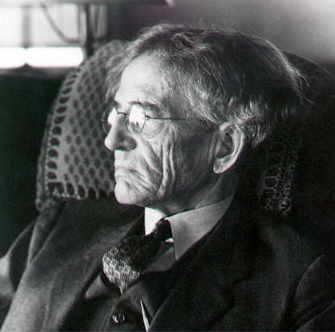“Liberty is absence of restraint. Freedom is participation in government.”
Source: Legal foundations of capitalism. 1924, p. 111
John Rogers Commons was an American institutional economist, Georgist, progressive and labor historian at the University of Wisconsin–Madison.
Wikipedia

“Liberty is absence of restraint. Freedom is participation in government.”
Source: Legal foundations of capitalism. 1924, p. 111
Source: "Institutional Economics," 1931, p. 648
“Legally, the term liberty means absence of duty, or rather the limit of duty.”
Source: Legal foundations of capitalism. 1924, p. 53
pg. 136.
Races and Immigrants in America, 1907
Source: "Institutional Economics," 1931, p. 654
Source: Legal foundations of capitalism. 1924, p. 351-352
pg. 41.
Races and Immigrants in America, 1907
Source: "Institutional economics," 1936, p. 243
Source: Legal foundations of capitalism. 1924, p. 221
Source: "Institutional Economics," 1931, p. 648
Source: Legal foundations of capitalism. 1924, p. vii
pgs. 115-16.
Races and Immigrants in America, 1907
Source: Legal foundations of capitalism. 1924, p. 95
Source: Legal foundations of capitalism. 1924, p. 376
Source: Legal foundations of capitalism. 1924, p. 320
"Institutional Economics," 1931
Source: Legal foundations of capitalism. 1924, p. 1; Lead paragraph first chapter on Mechanism, Scarcity, Working Rules
John R. Commons, "American shoemakers, 1648-1895: A sketch of industrial evolution." The Quarterly Journal of Economics (1909): 39-84.
pg. 131.
Races and Immigrants in America, 1907
“Liberty, as such, is only the negative of duty, the absence of restraint or compulsion.”
Source: Legal foundations of capitalism. 1924, p. 118
Source: Legal foundations of capitalism. 1924, p. 25
Source: Legal foundations of capitalism. 1924, p. 99
Source: "Institutional Economics," 1931, p. 652
Source: "Institutional economics," 1936, p. 242
Source: Legal foundations of capitalism. 1924, p. 32